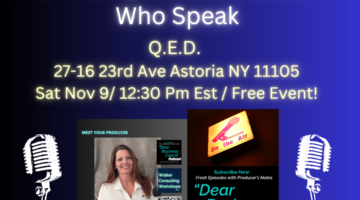
A few years ago I wrote a review of Roman Polanski's Oscar winning Holocaust epic The Pianist, and stated then that really there is only one kind of Holocaust movie, manipulated slightly with each release. I stand corrected. Adam Resurrected, Paul Schrader's film based on Yoram Kaniuk's 1969 novel, is an entirely new kind of Holocaust movie; one certainly not to be repeated. In it, an utterly uninhibited Jeff Goldblum plays Adam Stein, the unstable concentration camp survivor charming and disarming the staff and inmates at a remote psychiatric facility in the Israeli desert. A cabaret maestro and professional illusionist before the war, he casts spells on everyone he meets and slithers out of difficult predicaments as if coated in oil. What passes for a superiority complex and a self-centered indifference turns out to be a flimsy cover for the precarious reality that Stein has constructed. Stein has erased his uniquely tragic memories from the death camp; the kind of horror that proves fiction can sometimes be more awful than fact. Without delivering the gruesome details, suffice it to say Stein was employed as a clown and entertainer before the war, and he watched his family die and saved himself by continuing to perform in a most demeaning way. His suppressed past is brought to the fore by the introduction of a new patient to the facility; a boy who has been raised as a dog and believes himself to be one. Stein is then forced to confront the unthinkable, save the boy, and free himself.
Schrader's work, above all else, has Goldblum going for it. The deft and different actor holds the film together in a challenging role that requires a performance both sophisticated and unselfconscious. He is asked literally to eat dirt; to crawl and sink to the lowest semblance of humanity. Goldblum, who last paid homage to his roots in Independence Day, gets more deeply in touch with his yiddishe neshama here, speaking Hebrew and asking that age old question of the Jewish G-d: Why? Resurrected is a good fit for Goldblum because it allows him to express his connection to Judaism while maintaining his signature strange darkness. It's hard to figure what deprives Schrader's cinematic interpretation from achieving excellence, leaving it merely good and diverting. Despite the fully realized performance by Goldblum and the dozen or so moments of raw, excruciating Holocaust movie standards (as well as some trippy magic), the overall feel of the product is slightly rushed, kind of amateurish, and generally small. We are accustomed to Holocaust movies in grand scope and Adam Resurrected sometimes appears either made for cable or a glorified school play (albeit a fine one). Whatever the aesthetic deficiency, the film falls mainly because it is just too disturbing for the payoff. For all the nightmarish scenes conceived as a creepy cross between Burroughs and Weisel, we don't receive the cathartic satisfaction typically related to the dramatization of Jewish tragedy. We simply feel icky.
 More easy to define is the trouble with Stephen Daldry's The Reader. The movie, based on Bernhard Schlink's bestseller, is also a new breed of Holocaust cinema, finding a novel way to dwell on the mysteries of pure evil. The high concept premise is: How should a man judge the older woman whom he loved (and made adventurous love to) as a boy after finding out that she was a Nazi officer, partially responsible for her charge of Jews burning alive. The answer should be obvious and while the boy, Michael, (played as an adult by Ralph Fiennes with his patented quiet introspection) struggles with his human sympathies to keep the situation complex, the woman, Hanna (portrayed as icy, broken, and clueless by Kate Winslet) is so void of emotion that her fate becomes a source of our indifference. I mean, once someone has participated in the extermination of women and children, it's difficult to get us worked upabout their literacy (as is the odd attempt here).Without any central Jewish characters or flashbacks to the ghettos, this is the coldest Holocaust film in creation. It is positively goyish in its glassy eyed treatment of Jew killing, not that it aims to be anything more than an exercise in moral insurrection. Even the “hot and steamy” “romance” between Michael and Hanna boils down to mere teenage horniness (mistaken for and interchangeable with love) combined with whatever madness eats at a person after they willingly serve the all time most wicked regime, like, ever. The trouble with a movie about trying to understand Michael trying to understand Hanna is that Hanna is clearly deranged, and not just because of the war. She was a sick woman prior to it as well. She is not even ashamed by her atrocious behavior, and not because she believed it to be right or just, but simply because she seems unable to process basic information and make adult decisions. Winslet turns in a gut wrenching performance, but it is for naught as her Hanna is not a person, but a writer's device to start an unnecessary conversation about guilt, regret, and atonement. The Reader is the first Holocaust movie that all but ignores the actual hellish event and treats it as a jumping off point for an almost unrelated discussion. That would be fine if the characters were believable and connected in a more compelling way. A film's mere relation to the Holocaust does not always serve to provide reason to care. In that sense, The Reader (and to a lesser degree, Adam Resurrected) suffer from the same form of denial.
More easy to define is the trouble with Stephen Daldry's The Reader. The movie, based on Bernhard Schlink's bestseller, is also a new breed of Holocaust cinema, finding a novel way to dwell on the mysteries of pure evil. The high concept premise is: How should a man judge the older woman whom he loved (and made adventurous love to) as a boy after finding out that she was a Nazi officer, partially responsible for her charge of Jews burning alive. The answer should be obvious and while the boy, Michael, (played as an adult by Ralph Fiennes with his patented quiet introspection) struggles with his human sympathies to keep the situation complex, the woman, Hanna (portrayed as icy, broken, and clueless by Kate Winslet) is so void of emotion that her fate becomes a source of our indifference. I mean, once someone has participated in the extermination of women and children, it's difficult to get us worked upabout their literacy (as is the odd attempt here).Without any central Jewish characters or flashbacks to the ghettos, this is the coldest Holocaust film in creation. It is positively goyish in its glassy eyed treatment of Jew killing, not that it aims to be anything more than an exercise in moral insurrection. Even the “hot and steamy” “romance” between Michael and Hanna boils down to mere teenage horniness (mistaken for and interchangeable with love) combined with whatever madness eats at a person after they willingly serve the all time most wicked regime, like, ever. The trouble with a movie about trying to understand Michael trying to understand Hanna is that Hanna is clearly deranged, and not just because of the war. She was a sick woman prior to it as well. She is not even ashamed by her atrocious behavior, and not because she believed it to be right or just, but simply because she seems unable to process basic information and make adult decisions. Winslet turns in a gut wrenching performance, but it is for naught as her Hanna is not a person, but a writer's device to start an unnecessary conversation about guilt, regret, and atonement. The Reader is the first Holocaust movie that all but ignores the actual hellish event and treats it as a jumping off point for an almost unrelated discussion. That would be fine if the characters were believable and connected in a more compelling way. A film's mere relation to the Holocaust does not always serve to provide reason to care. In that sense, The Reader (and to a lesser degree, Adam Resurrected) suffer from the same form of denial.









